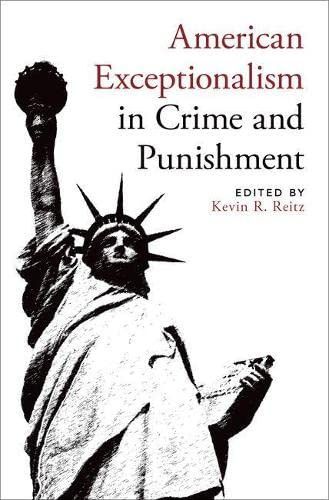
American Exceptionalism in Crime and Punishment
The idea of American exceptionalism has made frequent appearances in discussions of criminal justice policies--as it has in many other areas--to help portray or explain problems that are especially acute in the U.S., including mass incarceration, retention of the death penalty, racial and ethnic disparities, and the War on Drugs. While scholars do not universally agree that it is an apt or useful framework, there is no question that the U.S. is an outlier, when compared with other industrialized democracies, in its punitive and exclusionary criminal justice policies. This volume of essays deepens the debate of American exceptionalism in crime and punishment through comparative political, economic, and historical analyses, with an orientation toward forward-looking prescriptions for American law, policy, and institutions of government. The chapters expand the literature to neglected areas such as community supervision, parole release, and collateral consequences of conviction; explore claims of causation, in particular the view that the U.S. history of slavery and racial inequality has been a primary driver of crime policy; examine arguments that the framework of multiple governments and localized crime control, populist style of democracy, and laissez-faire economy are implicated in problems of both crime and punishment; and assess theories that cultural values are the most salient predictors of penal severity and violent crime. With an outstanding list of contributors edited by a leading authority on punishment, this volume demonstrates that the largest problems of crime and justice cannot be brought into focus from the perspective of single jurisdiction, and that comparative inquiries are necessary for an understanding of the current predicament in the US.